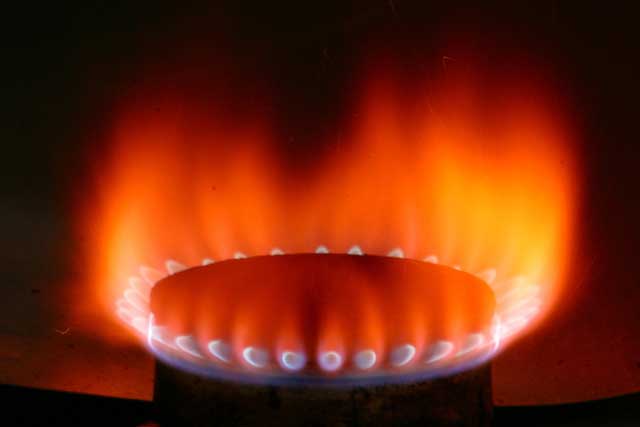On a cold winter night, nothing is better than a roaring fire. While having a gas fireplace is wonderful, there is also a potential risk that people should know about. Natural gas is used to fuel not only fireplaces but also stoves, clothes dryers, air conditioners, and water heaters. For homes that run on natural gas, it is essential to learn some basic safety tips to prevent a leak, as well as what to do in case of an emergency.
Tips for Preventing a Natural Gas Leak
The most important thing is to keep anything that runs on natural gas in proper working order. Every manufacturer provides scheduling specific to maintenance and service. By following these guidelines and having appliances checked, major and potentially life-threatening problems can be avoided.
In addition, appliances that operate on natural gas should always be installed, as well as removed, by a licensed professional. Although putting in a gas-fueled appliance may seem easy, there are a number of things that could go wrong. For instance, if the distribution line for the gas were to be damaged, a leak would occur.
There is even a right and wrong way to light the pilot light. This light must be on at all times. If it were to go out, lighting it is relatively easy, but if the pilot light continually goes out, it indicates there is a problem that needs to be professionally serviced. Most importantly, gas that has built up after a pilot light goes out needs to be given time to disperse prior to relighting.
While a fireplace is beautiful to look at and an excellent source of heat, an oven is not. Therefore, at no time should any appliance be used to heat a home unless it is manufactured for that purpose. In this case, carbon monoxide, which is an odorless and colorless deadly gas, can build up.
It is also imperative to know the appropriate way to turn the gas off to not only the natural gas appliance but to the entire home. For instance, when using a pipe wrench on the master shutoff valve on the outside of the home, the handle that runs parallel to the gas line must be turned 90 degrees.
Experts strongly recommend installing a detector for both natural gas and carbon monoxide. This type of alarm is sold at most home improvement and hardware stores and is designed to emit a sound whenever a leak or buildup is detected. This inexpensive device has saved many lives and is well worth the small financial investment.
Tips for Handling a Gas Leak
There are ways to detect a natural gas leak, but this requires an individual to pay attention to specific details. Remember, natural gas is odorless when in its natural form. However, when used for various gas-fueled appliances, a unique chemical is added that creates a smell of rotten eggs. This chemical was added to make identifying a dangerous leak possible, so the smell should be taken seriously.
In some instances, a natural gas leak can be heard. Typically, this involves a very slight hissing sound close to the area where the gas line connects to the appliance. Because a sound of a leak is not as noticeable, a detector would be highly beneficial.
There are also times when a natural gas leak will cause certain visuals. For instance, if the leak is on the outside of the home, any standing water might bubble; dirt around the leak might blow; and flowers, plants, and grass could die. If there is anything that appears out of the ordinary, it needs to be checked immediately by a licensed professional.
For a natural gas leak on the inside of the home, it is common to experience a number of physical signs. The most common include dizziness, nausea, headache, fatigue, and drowsiness. However, a natural gas leak can also cause a person to experience shortness of breath, confusion, chest pain, and irritation, which are all signs of carbon monoxide poisoning. This is potentially deadly, so at the first physical sign, all humans and animals should get out of the home right away.
Tips for Dealing with a Natural Gas Leak
If a natural gas leak is suspected or confirmed, all doors and windows need to be opened. This will allow the gas to escape while fresh air comes into the home.
In addition, nothing should be lit. Any candles need to be put out, and no electrical devices should be operated. One tiny spark could be enough to cause a massive explosion, so lights, televisions, radios, the coffee pot, and anything else running on electricity should not be turned on or off. It is also important to avoid using a cellphone, opening the garage door, and even turning the car engine on.
An individual should try to get to the outside gas line valve to shut it off, but if this is not possible, the entire family should get outside and let a professional locate the exact point of the leak. Because a natural gas leak can be deadly, notify 911 or the gas company immediately.
While natural gas is an efficient method for heating a home and running various appliances, it demands respect.




